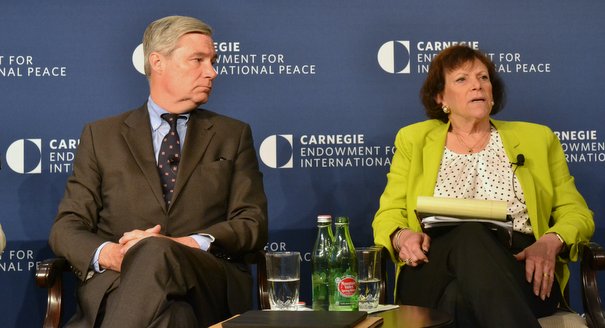Registration
You will receive an email confirming your registration.
Meeting U.S. commitments made in Paris to keep climate change within safe limits will require a price on greenhouse gas (GHG) emissions to harness market forces. However, oil is the most difficult fossil fuel to price owing to its diverse chemical and geologic make-up, its complex supply chain, its use for largely a single purpose—transportation—for which it has few substitutes, and its massive globalization. These characteristics all make the design of an effective and fair tax particularly difficult. Until now.
The Carnegie Endowment for International Peace is releasing its new report, Smart-Tax: Pricing Oil for a Safe Climate. For the first time, it is possible to estimate the value and profile of GHG emissions from oils throughout their supply chain using an Oil-Climate Index. This allows for the replacement of blunt tax designs with a smart tax that captures oil’s total emissions with minimal economic cost and maximum efficiency.
Carnegie hosted the release of the report followed by a panel discussion about a smart-tax design, why U.S.—and North American—involvement will be critical, and why national policymaking must catch up to the new realities of today’s oil landscape.
Speakers
Sheldon Whitehouse
Sheldon Whitehouse is the junior United States Senator from Rhode Island, serving since 2007.
Walter C. Minnick
Walter C. Minnick is a co-founder and partner of Partnership for Responsible Growth. Walter also served as the U.S. Represenative Congressman of Idaho from 2008 to 2010.
Deborah Gordon
Deborah Gordon is director of Carnegie’s Energy and Climate Program, where her research focuses on oil and climate change issues in North America and globally.
Moderator
Jessica Tuchman Mathews
Jessica Tuchman Mathews is a distinguished fellow at the Carnegie Endowment for International Peace. She served as Carnegie’s president for eighteen years.
